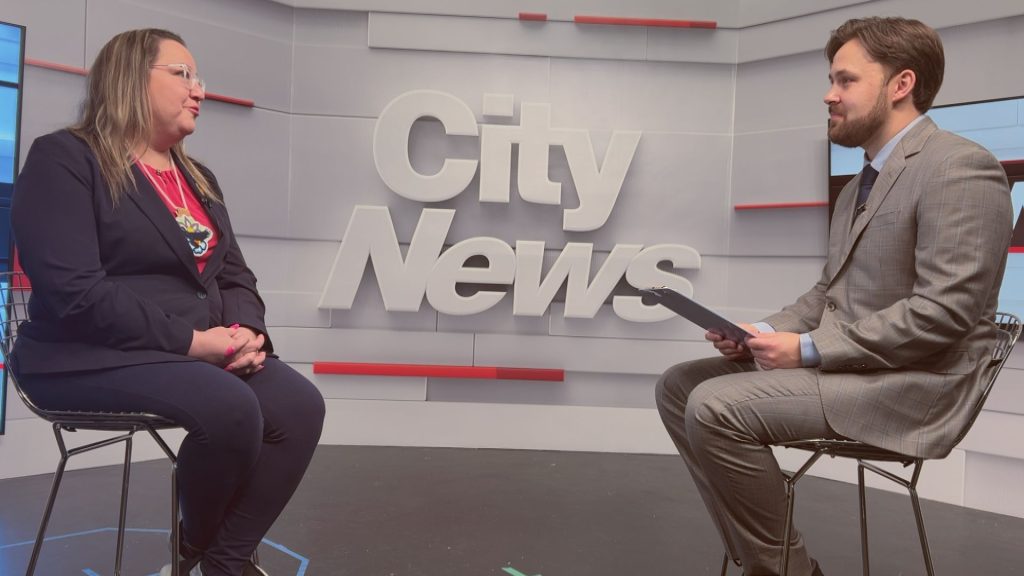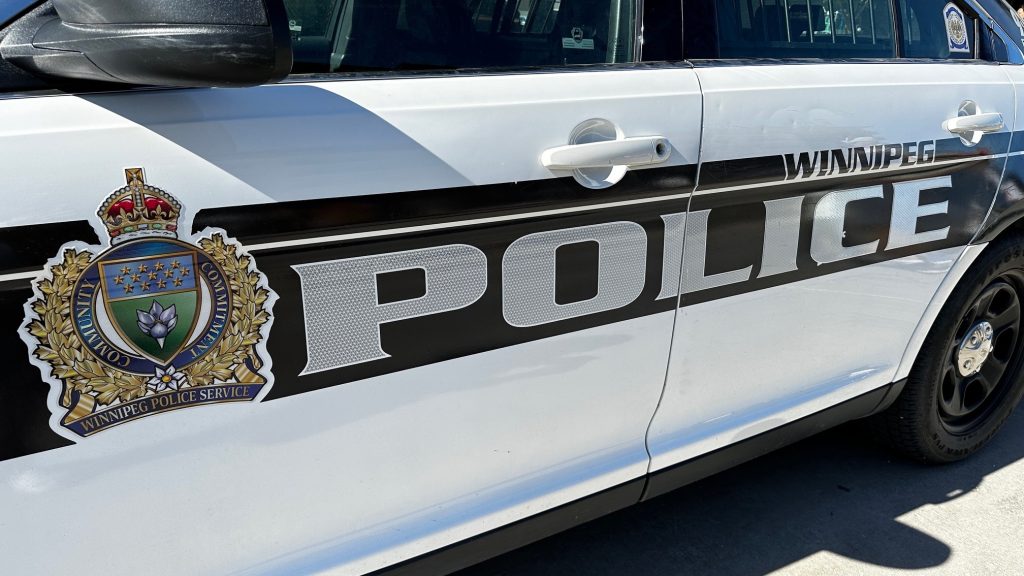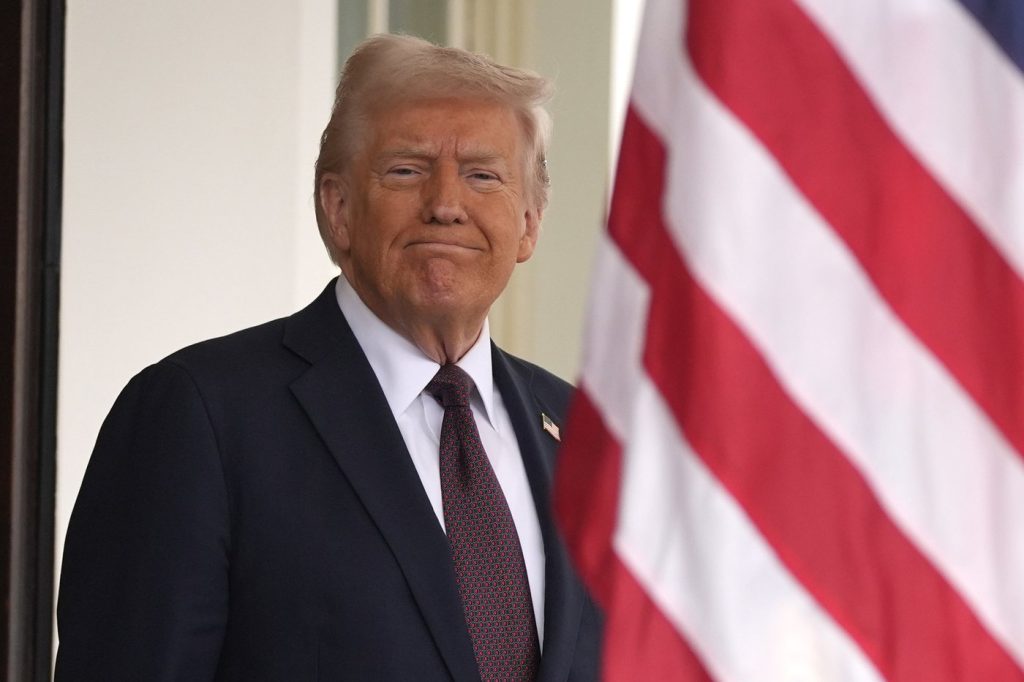AFN National Chief calls on all levels of government to embrace relationships with First Nations

Posted December 27, 2024 2:06 pm.
Last Updated December 27, 2024 3:23 pm.
The Assembly of First Nations is gearing up for the new year, prepared for a potential election, a change of government and whatever that may bring.
CityNews’ Mitchell Ringos sat down with AFN National Chief Cindy Woodhouse Nepinak to find out how Canada’s First Nation and Indigenous leaders are getting ready for 2025 and beyond.
Mitchell Ringos (MR): A lot of key topics, specifically, taking this role. New to the role as the National Chief; the youngest woman and mother to hold this position. It’s now been close to a year. I know you have had a lot of experience before this, but being thrown into this, how has this experience been for you so far?
National Chief Cindy Woodhouse Nepinak (CWN): First of all, I want to say Merry Christmas and Happy Holidays to all of your viewers. Thank you for having us on and welcoming us today. The first year has been busy and I want to thank First Nations from coast, to coast, to coast. I want to thank Canadians for their advice, for their love, for their guidance. I want to thank the multiple governments that I’ve met, from all stripes and the opposition parties and of course, I want to thank our Regional Chiefs for this first year in. And I want to thank my family, because being a mother, of course, I need support from my family, their father and of course from my parents and my children’s grandparents as well. I’m so blessed with a strong foundation, a strong family. Leading this year, for First Nations, it ebbs and flows, and there’s just not a shortage of issues. I think that Canada, the more that Canada invests in First Nations, the better they will be globally.
MR: Speaking about Canada, I know we were just chatting about this, now having to work with top representatives of each government and province and Canada in general. How has that experience been dealing with them? Trying to push initiatives and other reconciliation factors throughout the year?
CWN: If there is political will, it will happen. I think that’s absolutely important we see that. I call upon all governments. I know the NDP has stressed their support, we look to other members of parliament, we also look to other premiers to stand with us in our call for an inquiry into police brutality towards First Nations people. Standing with First Nations mothers and seeing their plea for support, wondering: ‘Why is there such a trend upward of the killing of First Nations people in this country?’ And I think that that’s something we have to take very seriously.
MR: We’ve seen a lot of cases this year of police on First Nations leading to someone passing away or dying, some of which have no crime associated with them. With this happening, a lot of First Nations have been saying: ‘We don’t want the RCMP. We don’t want the regular police force; we want to govern ourselves. We want to police ourselves.’ Is that something you’ve heard First Nation chiefs and leaders talk to you about or is something that actually can be done?
CWN: It can be done and I think that it just needs the political will. I know we’ve been working on that all year and we’re going to continue to work on that into 2025 and with the new government. Because we know that federally, there will be an election in the fall — maybe earlier — we don’t know. But certainly we need a new way of policing for First Nations in this country.
Policing as an essential service needs to be a priority for any government. We had at one time 58 First Nation police forces, we’re now down to 32. Why is the trend downward instead of upward? I think it’s important. When First Nations have our own police forces, we see less death. We see some police forces in this country that are First Nations run that have never killed anybody. And I think we have to look at that and say: ‘it’s important to give First Nation’s more support to create their own forces; their own police forces’ and working with other jurisdictions, and respecting each other, in a good way. So certainly, it’s a big discussion — it’s a hard discussion — because it does involve the provinces and territories. The province’s themselves and the Supreme Court, in Quebec, we had a big victory there, and we continue to have victories through the courts on child welfare, on mining and on policing.
I think that the provinces, territories and the federal government, the smartest people in government, will work with First Nations people, because it’s going to mean a better, stronger country together. By working together, rather than in the courtroom.
MR: About that communication, just yesterday, Manitoba chiefs came and held a press conference saying on Jordan Principle funding. They were told to spend money, they spent money, and now they’re saying they have to go through all these loops to get it, they were saying: ‘We just don’t have this during Christmas, this is not the time to be doing it.’ Speaking of communication, they felt like they weren’t heard. But talking a little bit, we have some updates?
CWN: We were at the Canadian Human Rights Tribunal this week and I know that they — just moments ago — advised Canada that Canada has to have a plan by Jan. 17, but at the same time, I know that it’s urgent. So I urge all governments, and the federal government particularly, to work with the Manitoba chiefs to get this moving and get this moving in the right way.
MR: Continuing on funding for First Nations, a lot of infrastructure problems and priorities that the government has set out to address, including Clear Water, more schools on First Nations, Internet. Estimated $49 billion needed to cover that by 2030. We have seen some schools go up. We have seen boil-water advisories go away, but not all of them. Does this still need to be a push? Do we need to get this fixed? We’re now going into 2025, does this need to be fixed next year?
CWN: Absolutely. We have a commitment that we’re going to close these gaps by 2030, we’re going to hold the government to that. And I think that’s smart investments for Canadians, and here’s why: The Conference Board of Canada, the Assembly of First Nations, we came together, and worked on a big report, as well as with the federal government, and that shows Canada being mid-way of a G7 country around the world. But if they put these investments in, to First Nations, and they invest in First Nations communities, to close this infrastructure gap, that creates 340,000 new jobs in Canada, most of which go to Canadians. A small portion of course goes to First Nations, but at the same time, it propels Canada to No. 1 around the world globally. So they have to work with First Nations, any smart government will work with First Nations. And when we talk about the Team Canada approach, there shouldn’t be a Team Canada approach in Canada without First Nations at the table. We’ve been talking to our counterparts in the U.S. and we’re willing to be partners here and work with people who are willing to work with us.
MR: With Trump and his administration coming in early next year, we’ve heard a lot of claims from him, not only on the Tariffs, but wanting to make Canada the 51st state. Is it concerning hearing stuff like that considering how — especially in the U.S. — they don’t really identify or acknowledge residential schools, or the traumas they have put on their Indigenous peoples, is it concerning to see a government to say: ‘we’d like to see Canada become the U.S., but would that mean reconciliation and everything we’ve grown here is gone?
CWN: Oh absolutely, it’s a big discussion, but it’s also disrespectful to Canadians and I think we should all be appalled by that. You don’t say that about another country, particularly there are First Nations people here first and foremost and this is our country. Every square inch of it is Indian land. We’ve never created these borders; with the U.S. side, with our counterparts over there and talking with them. And there’s lots of grievances that the U.S. has to deal with when it comes to First Peoples’ on their side of the border. I know the previous President had done an apology on residential schools a month and a half ago. So I think that’s promising, but at the same time, they need to come a long way. I think Canada is advanced well forward, and I think, as Canadians we need to be united and we be united together. We’re here as partners as we always have been. Treaty partners, inherent right partners, and we always have been.
MR: So the U.S. when they’ve been looking to grow relationships with Canada through this new administration, they have to not just look at Canada, but also the First Nations?
CWN: Absolutely. We share this land with Canadians openly and I think for another country to come and just assume that nobody is here again, that’s so false.
MR: Going back to a more general look at things, obviously the AFN meeting just happened recently in Ottawa. 94 Calls to Action, still working to get there. Coming out of that meeting, what pushes forward in filling those Calls to Action did we get to this year? And what else do we need to focus on next year, so we can continue to check off these boxes?
CWN: Well, certainly. As we can see, we have an infrastructure gap we have to close, that we have a commitment to do by 2030. We’ve got so much work to do. Child welfare for instance and policing and healthcare. I know that there was so much work done in health across the country, and the provinces and the federal government, and they come together about $60 billion in house funding, but First Nations are kind of left to the sideline and that type of relationship has to stop in this country. If Canada results, they will be a the table with us and make sure we’re included as full partners. We’re ready, and we’re ready to move forward in a good way.
MR: Speaking about relationships here in Manitoba, obviously, or first First Nations Premier in Wab Kinew, we’ve seen him do a lot of things for the indigenous population, Including the recent landfill search. A big push in this city, especially with orange shirt day. We saw tens of thousands people come out, it was the first Orange Shirt statutory holiday this year. Is it encouraging to see more people taking part in Orange Shirt Day and Truth and Rec. Day? Especially those who aren’t Indigenous who have the free time to come out.
CWN: I remember as a little girl, I was young. I was a Chief’s Daughter, and listening to Phil Fontaine at that time, when he was Grand Chief of the Assembly of Manitoba Chiefs and talking about residential schools, it wasn’t an easy issue to talk about, and that grew right here in Manitoba. Of course, we have the Aboriginal Justice Inquiry and the Truth and Reconciliation Commission and the late Murray Sinclair. There’s lots of remarkable Manitobans — lots of good work comes out of Manitoba itself and I know that you think back on residential schools. And I remember, as I was saying, as a little girl listening to those conversations and knowing those were going to be hard conversations, that no one wanted to talk about them at the time, but look at how far we’ve come. And I know it’s not an easy conversation to have. I certainly lift up institutions that talk about the true history of what has happened in Canada and I think our kids are more progressive than many of us. They learn more about the history of this country, than sometimes maybe some of the older generation, so I lift up our young people for that. For their commitment and their commitment to the environment and their commitment to each other.
MR: Speaking about the youth, even in Manitoba, I know even in Manitoba, every leader we’ve seen saying: The youth are the leaders of tomorrow, and especially preserving Indigenous culture and Language, which there’s been a huge push in Manitoba to keep that language alive. For the youth who are growing up and hearing this. Is is inspiring, or do you feel like you can trust the next generation to come up and continue the work we’re doing now.
CWN: Absolutely. They question the environment in what we’re doing and I think we see that everyday. We see around the world and certainly here in Canada, major storms. You see it in Vancouver this week, and I think these young people are trying to shine a light on what we’re doing wrong. And I think we should listen to them.
MR: In terms of just Indigenous leaders, here in Manitoba, two big losses with Grand Chief Cathey Merrick and the late, great Murray Sinclair. I know for Sinclair specifically, a big inspiration for you. With his passing, how do you continue his work through your own work as National Chief and how do you remember that relationship with him? How did he help you out?
CWN: Well, I think we remember the road map. Truth and Reconciliation is unfinished. The 94 Calls to Action, there’s just so much work to do. And I invite all Canadians to look at the Truth and Reconciliation Commission and see how far we’ve come and how far we have to go. And certainly, when I think of the late Cathy Merrick, my dear friend, it was shocking when she left us so suddenly. I was very close to her and I think of her honestly and having the hard conversations even in this province. And I want to thank her for her life, her dedication for First Nations in healthcare and then of course toward our women in landfills. Even if she stood alone, she would have stood there. I want to commend her families and the late Cathy Merrick for her work on that and may nobody, no family, ever have to go through that again and to have to fight so hard to look for your loved ones again.
MR: How important is it for specifically Indigenous leaders, like Cathy, those who come in and try to and even fill part of her role, how important is it that they continue having those hard conversations and the ones you see a lot of politicians don’t have.
CWN: Sometimes things are easy or left unsaid, but I think the harder conversations in change comes from when we have those hard conversations with each other. Change comes when we can have healthy debates amongst each other. There should not be anything wrong with debating, as long as you come out on the other side united and try to find a better path forward. I think we have to keep doing that as the young country that we are, but let’s stay strong and let’s stay united.
MR: Obviously just in the holidays now, heading into 2025; going into your second year as National Chief, what are your goals? What do you plan and hope to achieve at the start of the year and in a broader aspect.
CWN: We’re working on a platform as we speak for the next general election. I know that every member of parliament should not say they don’t know what First Nations’ issues are. We’re going to make sure that we work to get documents into every political team in this country to make sure that they know what our expectations are and we’re going to test them on it as well. We call upon them: What’s their stance on First Nations’ issues and I think that making sure that they’re including candidates as well.
I know it’s a big year this year for an election, but also to remember that we have work to do. Bill C-61 for instance is in the house of commons right now, I know it’s pretty chaotic down there, but at the same time, Bill C-61, we look to every member of parliament that’s there right now, and you are responsible if that bill gets through or doesn’t get through, because it’s in their hands right now to stop playing politics and get that bill through. Then they can go play politics all they want again, but at the same time, when you’re thinking of a young child without access to clean drinking water in this country, have a heart and remember that. You have priorities to get through and very quickly.
We think of water and so many things. There’s so much work to do in the year ahead. We also need to make sure that policing as an essential service, that we get that moving, and moving in a good way, to policing as a priority, to make sure that First Nations have safe and healthy communities like anywhere else. It’s disheartening when i get calls from the North and there’s no police service up there for days and days. That’s so unacceptable. Any other Canadian or town or city would never tolerate that and neither should first nations.
MR: There is a lot of confusion in Ottawa right now. If there per se is a change of government heading into 2025, how do you establish a relationship with potentially a new Prime Minister and are there any concerns about all of the things you’ve been pushing for potentially being road blocked by a new government coming in.
CWN: I am going to continue to build relationships. I want to thank Pierre Pollievre and his lovely wife for having my family over for dinner. I want to continue that dialogue with him. I met with him three or four times in the last couple of months. We’ll continue to talk about all those important issues. I also want to thank Mr. Jagmeet Singh, I talk to him all the time as well, and of course, making sure the bloc Québécois, as maybe different as our views our, I want to thank them as well for coming to visit our chiefs-in-assembly. Mr. Poilievre has been there, the Prime Minister and his entire cabinet has been to speak to our chiefs-in-assembly.
We’ve had record numbers at the Assembly of First Nations in our Assembly in July where our chiefs’ gather of course, then we had an assembly in October, where we had record numbers, just focused on Child Welfare. The whole country was watching that, $47.8 billion. I’m thankful that we brought that forward. Now, I think that’s the ground floor, nothing should ever go lower than that. Of course, we had an assembly as always, every December in Ottawa, and we’ve had a record number of people and all political parties coming. So First Nations, the AFN is alive and well, and we have a lot of work to do in 2025.








